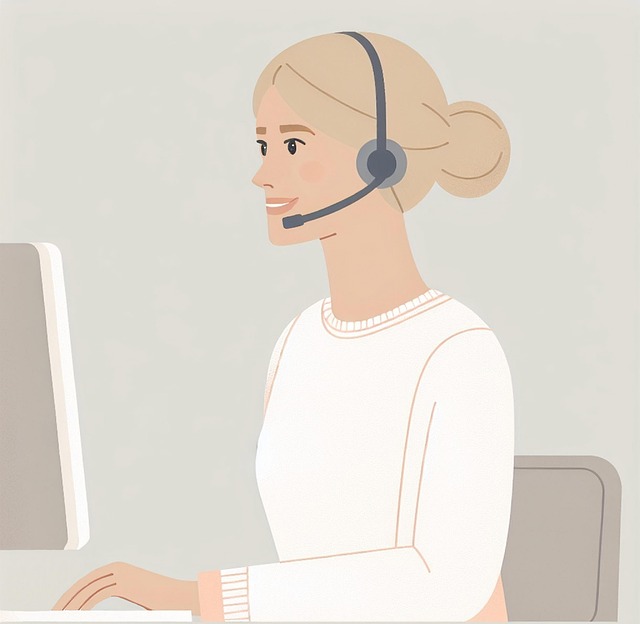HIPAA compliance is essential in digital healthcare to protect patient data privacy. Outsourcing front desk operations to a HIPAA call center offers significant advantages for clinics and private practices, including secure call handling, efficient appointment scheduling, and reduced administrative burdens. These centers employ trained professionals who understand medical office call handling, ensuring compliance with every interaction. By implementing a HIPAA-compliant communication service, healthcare providers can streamline patient follow-ups, improve operational efficiency, enhance patient satisfaction, and focus on direct patient care, ultimately optimizing healthcare outcomes. Continuous compliance through regular reviews, updates, and staff training is crucial for long-term success.
In today’s digital age, efficient and secure communication is vital for healthcare providers. A HIPAA-compliant communication service emerges as a game-changer, offering clinics and private practices a centralized hub for managing medical calls, appointment scheduling, and patient follow-ups. This article explores the significance of HIPAA compliance in healthcare communication, highlighting the role of a dedicated call center in streamlining operations, enhancing patient care, and ensuring data security. Discover how these services revolutionize healthcare interactions, catering to the unique needs of medical practices while navigating complex privacy regulations.
- Understanding HIPAA Compliance in Healthcare Communication
- The Role of a Dedicated HIPAA Call Center
- Efficient Medical Call Handling and Appointment Management
- Streamlining Patient Follow-Up Processes
- Benefits for Clinics and Private Practices
- Implementing and Ensuring Continuous Compliance
Understanding HIPAA Compliance in Healthcare Communication

HIPAA compliance is a critical aspect of healthcare communication that ensures patient data privacy and security. In the digital age, where medical records are increasingly digitized and accessible, protecting sensitive information has become more important than ever. The Health Insurance Portability and Accountability Act (HIPAA) sets strict guidelines for handling protected health information (PHI), encompassing everything from patient names and addresses to medical histories and treatment details. Adhering to these regulations is not just a legal requirement but also ensures the trust and confidence of patients, who expect their healthcare providers to maintain the utmost confidentiality.
For clinics and private practices, managing medical calls, appointment scheduling, and follow-ups while maintaining HIPAA compliance can be challenging. Outsourcing front desk operations to a specialized HIPAA call center can provide significant benefits. These centers employ trained professionals who understand not only medical office call handling but also the nuances of patient communication support. By leveraging front desk outsourcing, healthcare providers can focus on delivering quality care while leaving complex administrative tasks to experts who are equipped to handle them securely and efficiently, ensuring compliance with every interaction.
The Role of a Dedicated HIPAA Call Center

In the healthcare industry, ensuring patient data privacy is paramount, and this is where a dedicated HIPAA call center plays a pivotal role. These specialized centers are designed to handle medical calls with stringent compliance standards, safeguarding sensitive information. With trained professionals, advanced encryption technologies, and robust security protocols, they offer a secure environment for effective communication. By outsourcing front desk operations to a HIPAA-compliant service, healthcare providers can focus on patient care while ensuring consistent, professional, and confidential medical call answering.
A well-managed call center streamlines processes like appointment scheduling and patient follow-ups, improving operational efficiency. It provides a centralized hub for managing various communication channels, ensuring no crucial information goes unnoticed or unrecorded. This not only enhances the overall patient experience but also allows medical practices to maintain accurate records, adhere to regulatory requirements, and deliver exceptional customer service, all while maintaining the highest level of data security.
Efficient Medical Call Handling and Appointment Management

In today’s digital age, efficient medical call handling and appointment management are paramount for healthcare providers to deliver seamless patient care. A HIPAA-compliant communication service acts as a game-changer in this regard, streamlining processes and enhancing patient communication support. By leveraging advanced technologies, these services ensure that every patient interaction is secure and compliant, meeting the strict standards of the healthcare industry.
This innovative approach offers a virtual medical receptionist solution, enabling clinics and private practices to outsource their front desk operations. As a result, medical professionals can focus on patient care while the communication service efficiently manages incoming calls, schedules appointments, and facilitates timely patient follow-ups. This not only reduces administrative burdens but also enhances patient satisfaction by providing prompt and reliable services.
Streamlining Patient Follow-Up Processes

In today’s digital age, streamlining patient follow-up processes is crucial for healthcare providers to maintain efficient operations and deliver exceptional patient care. A HIPAA-compliant communication service can revolutionize how clinics and private practices manage medical calls, appointment scheduling, and post-visit check-ins. By outsourcing front desk functions to a virtual medical receptionist, healthcare professionals can free up valuable time and resources that were once dedicated to administrative tasks.
This innovative approach not only enhances operational efficiency but also improves patient satisfaction. With automated appointment scheduling and seamless call answering, patients experience better communication and faster response times. As a result, practices can reduce no-show rates and optimize their schedules, ensuring every patient interaction contributes to improved healthcare outcomes and stronger patient relationships.
Benefits for Clinics and Private Practices

For clinics and private practices, implementing a HIPAA-compliant communication service offers a multitude of benefits designed to streamline operations and enhance patient care. By outsourcing medical office call handling to a specialized virtual medical receptionist, healthcare providers can significantly reduce operational costs associated with in-house call centers. These virtual assistants are trained to efficiently manage incoming calls, providing prompt and professional medical call answering services that reflect well on the practice’s reputation.
Moreover, such a service ensures secure and compliant medical call handling through robust encryption and adherence to HIPAA guidelines. This not only protects sensitive patient information but also allows healthcare professionals to focus their time and energy on direct patient care rather than administrative tasks. Effective appointment scheduling and seamless patient follow-ups facilitated by these virtual medical receptionists contribute to improved clinic efficiency, better patient satisfaction, and ultimately, enhanced operational success in the healthcare sector.
Implementing and Ensuring Continuous Compliance

Implementing a HIPAA-compliant communication service is just the first step; ensuring continuous compliance is an ongoing process for any healthcare organization. This involves regularly reviewing and updating policies to reflect changes in regulations, as well as providing comprehensive training to staff involved in medical call handling and patient follow-ups. A dedicated team should be tasked with monitoring compliance, especially when integrating new technologies or outsourcing front desk operations.
By leveraging front desk outsourcing for medical office call handling, practices can enhance patient communication support while maintaining strict adherence to HIPAA guidelines. Regular audits, coupled with an emphasis on employee awareness, help identify potential gaps in compliance. With the right strategies in place, healthcare providers can focus on delivering exceptional patient care, knowing their communication service is a reliable and secure part of their operation.
